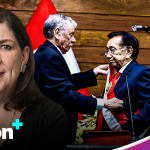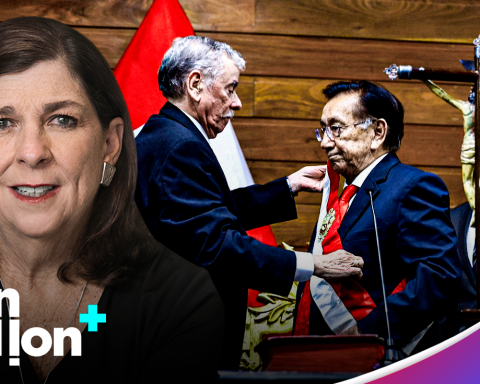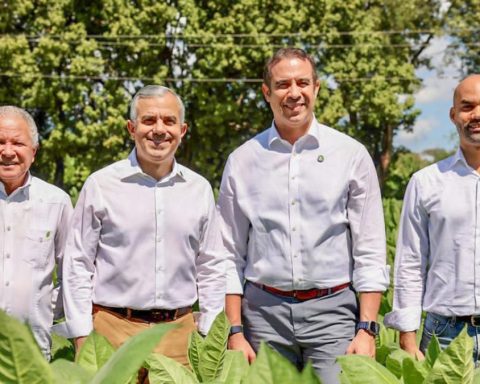P
Personally I prefer the category coined by the Italian historian Steven Forti, who calls far right 2.0
what is sometimes lightly called fascism
either neofascism
. On the ideological level, it is clear that we are talking about groups that take advantage of the cracks in citizen discontent, the support of the old right and the shortcomings of the left.
In Venezuela, more than a thousand international guests from 95 countries met this week at the first World Congress against Fascism, Neofascism and similar expressions. We heard brilliant interventions that defined the conceptual framework where these political groups are produced and reproduced, and emphasis was placed on crucial and novel elements of the new era. But the surname 2.0 is not secondary. The new technologies – in particular the so-called social networks – that these political formations have known how to use before and better than others, with the help of algorithms that favor by design polarization, extremism and the exacerbation of feelings of irritability and compulsion to violence in the desire to compete for attention, weigh heavily.
The increasingly transatlantic connections have allowed these groups to become one big global family. All the far-right politicians have personal relationships. They know each other, they often talk to each other, they congratulate each other on social networks, they meet, they participate in meetings organised by their parties and they finance their supporters. influencers and trolls, who make themselves known every time their partners, whether they live in Miami, Caracas or Buenos Aires, are in combat against left-wing governments and parties.
Some mentioned the best-known transnational groups, such as the Republican-linked Conservative Political Action Conference, which has tentacles in Mexico, Australia, Japan, Brazil and Hungary. The Atlas Network, coordinated from Washington, DC, provides resources and advice to more than 500 think tanks and partner organizations in more than 90 countries – some of the best known include The Cato Institute (US), Fundación Libertad (Argentina) and Libertad y Desarrollo (Chile).
Vox, in Spain, has launched the Madrid Charter, a programmatic manifesto that formalizes the concept of Iberosphere, which has allowed the creation of the Madrid Forum. This association, which presents itself as a counterweight to the São Paulo Forum and the Puebla Group, has been organizing meetings in Spain and Latin America; the most recent, last week in Buenos Aires with the star of the Latin American far right, Javier Milei.
The far right 2.0
It exists because it has been established globally. colonialism 2.0
supported by deterritorialized multinationals that receive exorbitant profits through the exploitation of the workforce of the countries of the South. In California, in the warehouses of Amazon and in the headquarters of Apple, Microsoft or any megacorporation, Pakistanis, Indians, Africans, Latin Americans, Europeans from poor countries work. For the multinationals, whether they are white, black, Asian, heterosexual or homosexual is not a problem. Colonialism 2.0 has shown itself capable of assimilating all religious, gender or racial backgrounds, as long as the lithium flows and we continue to be data exporters. What matters in the new colonial reality, even if it is separated by decades or even centuries from known colonial practices, is the extractivist spirit. That is, the will to take advantage of the resources in a country to generate wealth that the inhabitants of that territory will not enjoy.
The left has been dragging its feet for too long, watching in dismay as part of the working classes become irritated when they realise that their policies do not recognise them as they deserve. They do, however, make magnificent diagnoses. But it is not enough.
Where is the great family of the South to confront, at the speed of a click, the extreme right 2.0 that moves through the networks and weaves its transnational forums before our eyes? What are the spaces and tools to stop colonialism 2.0, the natural ecosystem of the right?
At the beginning of the last decade, Latin America had regional tools such as the Union of South American Nations and Celac forums that began to answer these questions and to energize the common market for technologies, dreaming of a fiber optic cable for Latin American countries that would ensure the sovereignty of data traffic, and attempted to repatriate the content of our countries, mostly hosted on US platforms.
It was then understood that no country alone can challenge the power of the far right on the internet, or the transnational platforms, which are the regional and multilateral organizations from which progress could be made in building a digital environment, that is, the possibility of combining knowledge, integrating universities, seeking funding for the development of their own technologies, creating spaces for reflection for the design of common policies.
But that does not exist today, it was acknowledged in Caracas, when it is urgent to recover those spaces so that the great family of the global South can put a face to fascism, neo-fascism, the extreme right or whatever you want to call these misfortunes that we suffer.
















